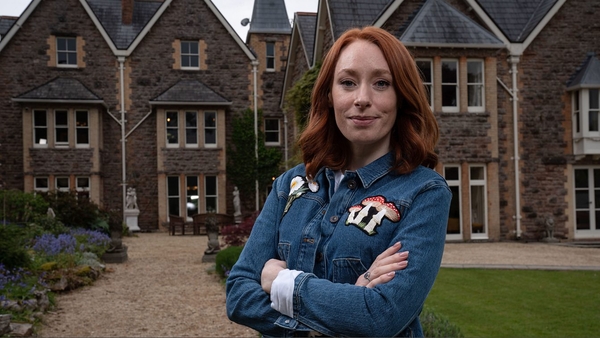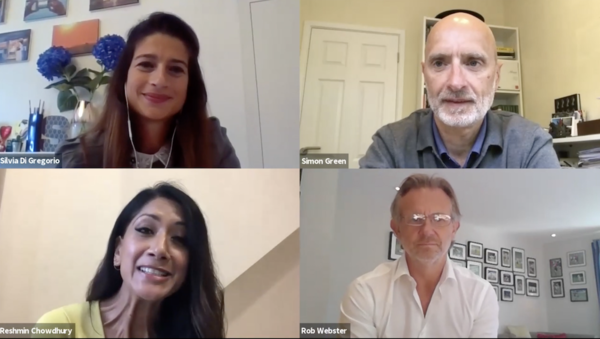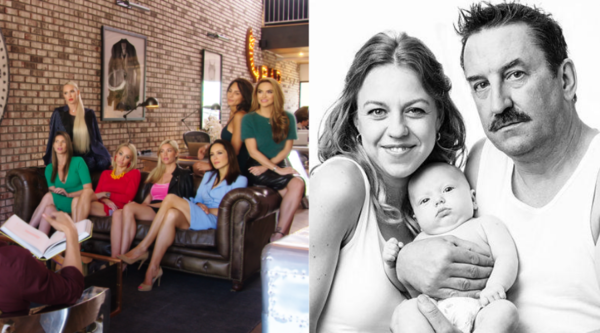Covid-19
BBC commissions new documentary Unvaccinated
Covid-19 cases are rising again, putting more people at risk of serious health problems and even death. However, there are still five million adults in the UK who have not received a single vaccine dose.
The virus has led to multiple lockdowns, more than 197,000 deaths and is now entering its fifth wave.
Mathematician Hannah Fry was part of the team that worked on the data that helped the UK out of its first lockdown and wants to move past the headlines and find out what the nation really thinks and feels.
Wanted: more staff, studios and gear - the TV industry's scarcity problem
"Fist fight” and “a perfect storm” are how producers are describing the current scarcity of crew, kit, studio space and talent in the British TV industry. The situation has arisen primarily due to the pre-Covid-19 content boom driven by the expanding streaming market and the post-lockdown rush back to production. And it is putting production schedules under strain.
How producers are working to news rules to keep production going
The show must go on” runs the showbiz saying, but even this old cliché has been turned on its head by the Covid-19 pandemic. Numerous dramas have temporarily halted production in recent months following Covid outbreaks among cast or crew. Sky thriller Cobra, for example, started shooting its second season at the end of September, but returned from the Christmas break to find that 15 of its cast and crew had tested positive for Covid.
The Changing Face of Live Sports Production | Q&A with Greenlight Television | RTS Isle of Man
RTS Isle of Man Centre’s Paul Moulton is joined by Rob Hurdman and David Beynon, the directors of the Isle of Man-based production company, Greenlight Television, to learn of the drastic changes they made to their production techniques to continue to deliver their services to clients and broadcasters across the globe.
RTS Thames Valley talks technological innovation in TV newsrooms
But once the pandemic ends will these changes remain? This was debated at a RTS Thames Valley session in late February, “Will news ever be the same again?”
Session chair Simon Morice highlighted how innovative news services available on YouTube such as the US podcast Too Long; Didn’t Read were breaking the mould and offering what he described as “authentic voices” to young people who tend to shun mainstream TV news bulletins.
TV's legal eagles battle coronavirus to keep productions going
When the UK first went into lockdown in March 2020, Fremantle lawyer Damian Kent told an RTS London event, “productions had to be suspended or stood down generally, so that meant looking at cast, crew and suppliers’ contracts. It meant going to broadcasters and producers, and agreeing what payments needed to be made.... It was an additional cost on the budget.”
Winners, losers and own goals: Live sport in lockdown
At an RTS event in September, some of the leading figures in sports broadcasting recalled the moment when the Covid-19 lockdown brought down the curtain on live sport in the UK.
“It was a moment that had been coming,” said Sky Sports Managing Director Rob Webster, looking back to the March lockdown. “Our Italian colleagues were ahead of us in terms of the virus and their sport. It was only a matter of time.
RTS Thames Valley explores the future of trade shows
At a late-July event, ‘The future of shows’, Darren Woolfson of Molinare, Abby Parsall (Boxer Systems), Ciaran Doran (Rohde & Schwarz), MC Patel (Emotion Systems) and Mark Birchall (Tradefair) formed an impressive panel, chaired by Penny Westlake (Interra Systems).
TV Picks: 3rd August – 9th August
Here are our top picks.
The Talk
Tuesday 4th August
Channel 4, 10pm
In the one-off documentary The Talk, Channel 4 shines a light on a talk that takes place in the black community, which those outside of the community often don’t know about.






